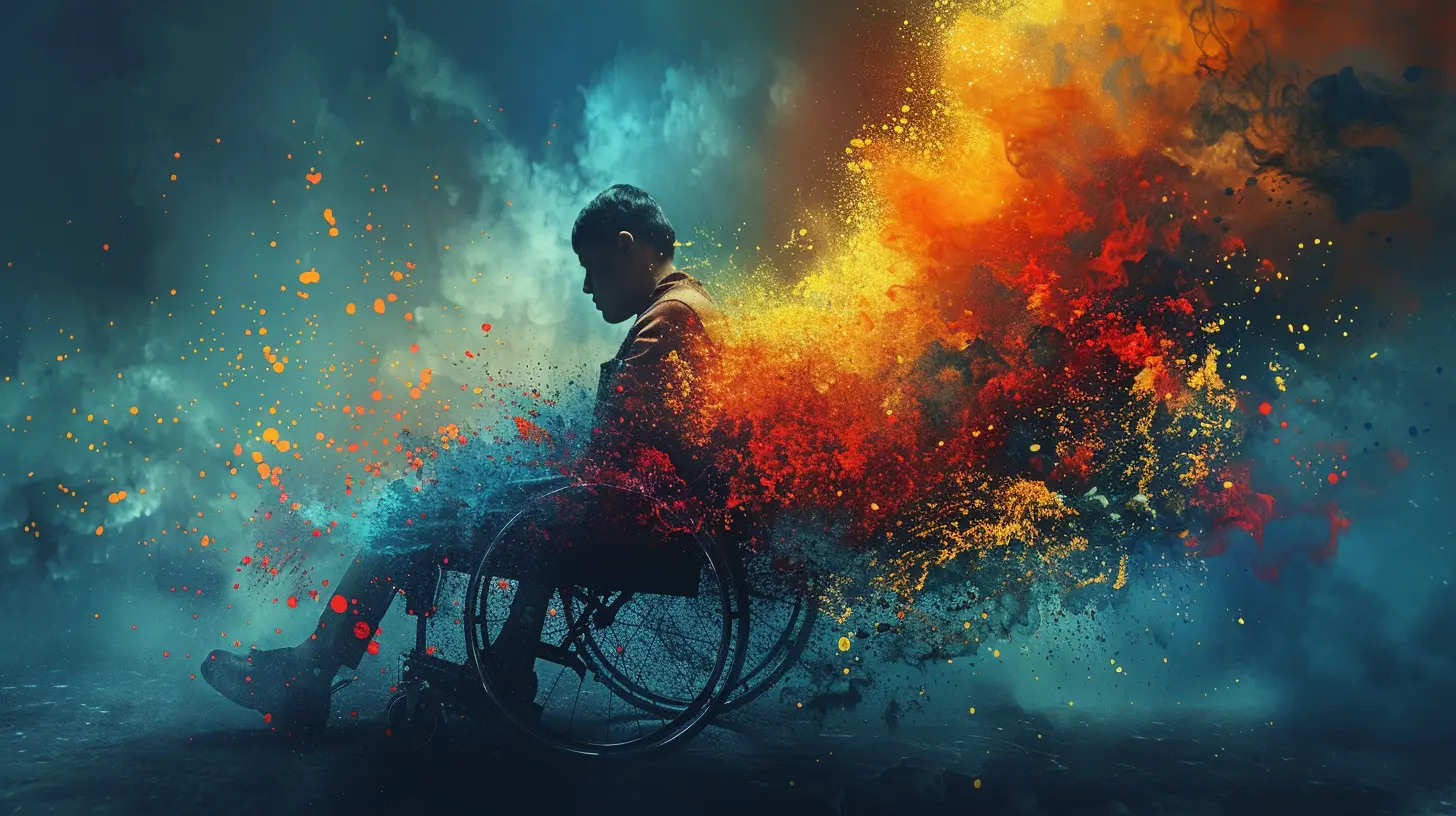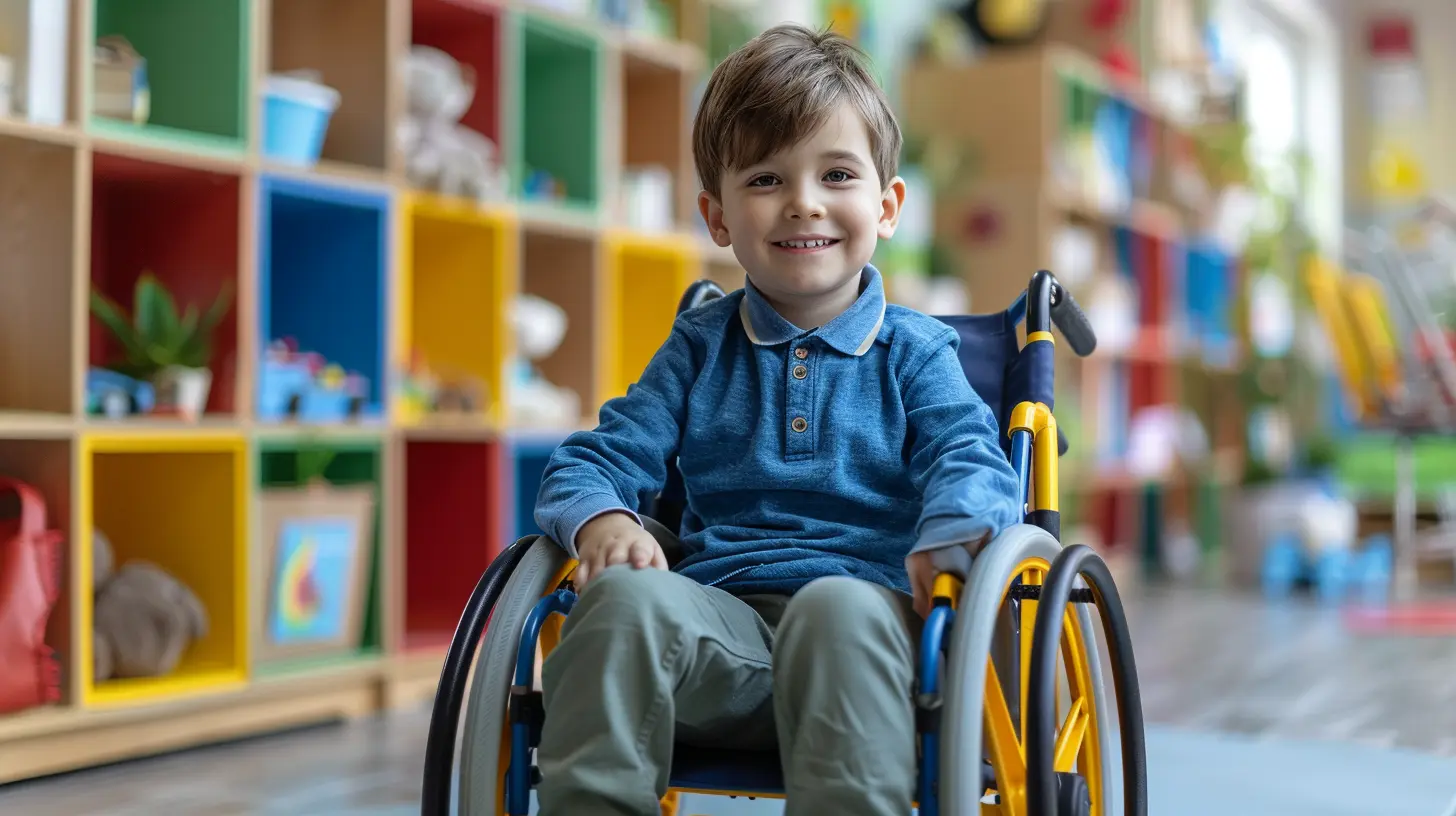Common Misconceptions About Learning Disabilities Debunked
21 May 2025
Learning disabilities are often misunderstood by the general public. These misconceptions can lead to stigma, frustration, and even barriers to getting the right support for individuals who face challenges in learning. The truth is, learning disabilities are not a reflection of intelligence or ability, and certainly not something that can be simply "outgrown."
Let’s take a closer look at some of the most common misconceptions about learning disabilities and break them down. By the end of this article, you’ll have a clearer understanding of what learning disabilities really are—and, hopefully, more empathy for those who live with them.

What Is a Learning Disability?
Before we address the misconceptions, it’s crucial to clarify what a learning disability actually is. A learning disability is a neurological disorder that affects a person's ability to receive, process, store, or respond to information. This can affect reading, writing, math, reasoning, and even social interactions.Now that we know the basics, let’s dive into the common myths and misconceptions surrounding learning disabilities.
1. Myth: Learning Disabilities Are a Sign of Low Intelligence
Truth: This is one of the most harmful misconceptions out there. People often assume that an individual with a learning disability must have a low IQ or lack intelligence. However, intelligence and learning disabilities are not directly linked. In fact, many individuals with learning disabilities have average or above-average intelligence.People with learning disabilities simply process information differently. Think of it like driving a car with a different engine configuration—it might require a different approach, but the destination is still reachable. Some of the most brilliant minds in history, including Albert Einstein and Thomas Edison, were believed to have learning disabilities. Clearly, it didn’t stop them from achieving greatness!
Key Takeaway: Learning disabilities are not a reflection of intelligence but rather a difference in how the brain processes information.

2. Myth: People With Learning Disabilities Are Just Lazy
Truth: This misconception is not only wrong but also incredibly discouraging for those living with a learning disability. Learning disabilities do not result from a lack of effort or motivation. In fact, many individuals with learning disabilities work harder than their peers to achieve the same results.Imagine trying to read a book where the letters are constantly moving around—sounds exhausting, right? That’s what it can feel like for someone with dyslexia. The effort required to complete even simple tasks can be immense, and labeling someone as "lazy" only adds insult to injury.
Key Takeaway: People with learning disabilities are not lazy; they often have to work much harder to overcome their challenges.

3. Myth: Learning Disabilities Can Be Outgrown
Truth: Learning disabilities do not simply "disappear" with age. While individuals with learning disabilities can develop effective strategies to manage their challenges, the condition itself does not go away.This is similar to wearing glasses—your vision may not improve on its own, but with the right tools (like glasses), you can see more clearly. The same goes for learning disabilities: with the right interventions and strategies, individuals can learn to navigate their disabilities successfully.
Key Takeaway: Learning disabilities are lifelong, but with the right support, individuals can thrive academically and professionally.
4. Myth: Learning Disabilities Are the Same as Intellectual Disabilities
Truth: It’s easy to confuse the two, but learning disabilities and intellectual disabilities are not the same. A learning disability specifically affects how a person processes information, while an intellectual disability involves limitations in intellectual functioning and adaptive behavior.People with learning disabilities may struggle with specific tasks like reading, writing, or math, but they do not necessarily have a reduced ability to think, reason, or understand complex concepts. On the other hand, intellectual disabilities affect a broader range of cognitive and functional abilities.
Key Takeaway: Learning disabilities affect specific areas of learning but do not impact general intelligence, unlike intellectual disabilities.
5. Myth: Boys Are More Likely to Have Learning Disabilities Than Girls
Truth: This myth comes from the fact that boys are diagnosed with learning disabilities more frequently than girls. However, this doesn’t mean that boys actually have more learning disabilities. Research suggests that girls may be underdiagnosed because they tend to be less disruptive in school settings compared to boys, which can lead to their challenges being overlooked.It’s like noticing a noisy car engine but missing the quieter one that also needs maintenance. The signs may be less obvious in girls, but that doesn’t mean they aren’t facing similar struggles.
Key Takeaway: Boys and girls are equally likely to have learning disabilities, but girls are often underdiagnosed due to different behavioral patterns.
6. Myth: All Learning Disabilities Are the Same
Truth: Not all learning disabilities are created equal. The term "learning disability" is actually an umbrella that covers a variety of specific disorders, each affecting different areas of learning. Some common types include:- Dyslexia: Difficulty with reading and language processing.
- Dyscalculia: Difficulty with math and number-based tasks.
- Dysgraphia: Difficulty with writing and fine motor skills.
- Auditory Processing Disorder: Difficulty in processing sounds and understanding spoken language.
Each of these disabilities presents its own unique challenges. Just because someone has one type of learning disability doesn’t mean they’ll struggle in every area of learning.
Key Takeaway: Learning disabilities come in many forms, and each one affects individuals differently.
7. Myth: Learning Disabilities Are Caused by Poor Teaching or Parenting
Truth: Learning disabilities are neurological in nature and are not caused by external factors like poor teaching, bad parenting, or lack of discipline. While a supportive environment is crucial for helping children with learning disabilities succeed, their condition is not a result of how they were raised or taught.Think of it like wearing a cast for a broken arm. A caregiver can help you with daily tasks, but they didn't cause the bone to break in the first place. Similarly, parents and teachers can support children with learning disabilities, but the disability itself is a result of how their brain is wired.
Key Takeaway: Learning disabilities are not caused by poor parenting or teaching; they are neurological conditions.
8. Myth: People With Learning Disabilities Can’t Succeed Academically or Professionally
Truth: Success in school or work is absolutely achievable for individuals with learning disabilities. It may take different strategies, accommodations, and more effort, but many people with learning disabilities go on to have highly successful academic and professional careers.From actors like Keira Knightley to entrepreneurs like Richard Branson, countless successful people have learned to manage their learning disabilities and excel in their chosen fields. It’s not about whether someone can succeed, but about finding the right tools and strategies to help them do so.
Key Takeaway: With the right support and determination, individuals with learning disabilities can excel academically and professionally.
9. Myth: Learning Disabilities Are Rare
Truth: Learning disabilities are far more common than most people think. According to the National Center for Learning Disabilities, approximately 1 in 5 people in the U.S. have some form of learning or attention issue, including learning disabilities like dyslexia and ADHD.That’s a significant portion of the population! The problem is that many cases go undiagnosed or misunderstood, which contributes to the misconception that learning disabilities are rare.
Key Takeaway: Learning disabilities are more common than you might think, and many people live with them undiagnosed.
10. Myth: Accommodations for Learning Disabilities Are Unfair Advantages
Truth: Accommodations for individuals with learning disabilities are not about giving them an "unfair" advantage, but rather leveling the playing field. Accommodations like extended test times, audiobooks, or speech-to-text software help individuals with learning disabilities perform to the best of their ability—not to give them an edge over others.Think of it like a ramp for a person in a wheelchair. The ramp doesn’t give them an advantage; it just allows them to access the same entrance as everyone else.
Key Takeaway: Accommodations are designed to provide equal opportunities, not unfair advantages.
Conclusion
Learning disabilities are often misunderstood, which can lead to a range of unnecessary challenges for those who live with them. By debunking these common misconceptions, we can foster a more inclusive, understanding, and supportive environment for individuals with learning disabilities.Remember: learning disabilities are not a reflection of intelligence or potential. With the right support, tools, and understanding, individuals with learning disabilities can—and do—achieve great success in all areas of life.
all images in this post were generated using AI tools
Category:
Learning DisabilitiesAuthor:

Bethany Hudson
Discussion
rate this article
3 comments
Riff McLemore
This article effectively clarifies prevalent myths surrounding learning disabilities, emphasizing that they do not reflect a person's intelligence or potential. Understanding these misconceptions is crucial for fostering a more inclusive and supportive educational environment. Great read!
May 25, 2025 at 3:12 AM

Bethany Hudson
Thank you for your insightful feedback! I'm glad you found the article helpful in addressing these important misconceptions.
Lillian Lewis
Great insights! Clarifying misconceptions fosters understanding and support for those with learning disabilities.
May 23, 2025 at 4:24 AM

Bethany Hudson
Thank you! I'm glad you found the insights helpful. Promoting understanding is crucial for supporting individuals with learning disabilities.
Keira McQuaid
This article sheds light on important misconceptions about learning disabilities. It's fascinating to see how understanding these nuances can foster empathy and improve educational approaches. I'm eager to learn more about supporting diverse learners!
May 21, 2025 at 1:01 PM

Bethany Hudson
Thank you for your insightful comment! I'm glad you found the article helpful and share the enthusiasm for supporting diverse learners. Your engagement is vital in fostering understanding and empathy in education!



